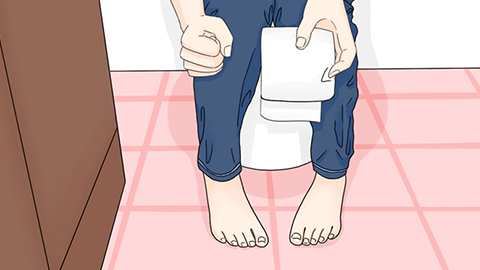What causes blood in stool after surgery for rectal cancer?
In general, rectal bleeding after surgery for rectal cancer may be caused by factors such as oozing from the anastomotic site during healing, dietary irritation of the intestinal mucosa, intestinal dysbiosis, ulcerative colitis, or rectal polyps. It is recommended to seek timely medical attention, identify the underlying cause, and receive symptomatic treatment under a doctor's guidance. Specific analyses are as follows:

1. Bleeding during anastomotic healing: In the short term after surgery, the anastomosis has not fully healed, and minor bleeding may occur due to friction during bowel movements, with blood appearing on the surface of the stool. Initially after surgery, patients should consume soft, mushy, or liquid foods, avoid coarse foods, rest in bed as directed by their physician, and symptoms usually resolve spontaneously as healing progresses.
2. Dietary irritation of intestinal mucosa: After surgery, the intestinal mucosa is sensitive, and consumption of spicy or hard foods can irritate and damage the mucosa, leading to bleeding. Adjust the diet to include mild, easily digestible foods such as porridge and soft noodles, eat more steamed eggs and tofu, drink plenty of water to soften stools, and reduce mucosal irritation.
3. Intestinal dysbiosis: Imbalance of gut flora due to postoperative antibiotic use or intestinal dysfunction may lead to mucosal inflammation and bleeding. Follow medical advice to take medications such as Bifidobacterium triple viable capsules, Bacillus subtilis and Enterococcus faecalis viable granules, or Clostridium butyricum viable capsules to restore intestinal microbial balance.
4. Ulcerative colitis: Immune abnormalities in the intestine cause ulcers in the colonic mucosa, resulting in bleeding from the ulcerated areas during defecation, often accompanied by abdominal pain and diarrhea. Follow medical advice to use anti-inflammatory medications such as mesalamine enteric-coated tablets, sulfasalazine enteric-coated tablets, or olsalazine sodium capsules to control the inflammatory response.
5. Rectal polyps: Postoperative mucosal hyperplasia in the intestine may form polyps, and friction during bowel movements can cause surface erosion and bleeding. Endoscopic polypectomy is required to completely remove the polyps surgically, preventing recurrent bleeding and disease progression.
Maintain regular bowel habits in daily life and avoid prolonged straining or squatting during defecation. Keep the anal area clean and gently wash with warm water after bowel movements. Schedule regular follow-up colonoscopies to monitor intestinal recovery. Maintain emotional stability, avoid anxiety, and enhance the body’s healing capacity through regular作息 (daily routines).





